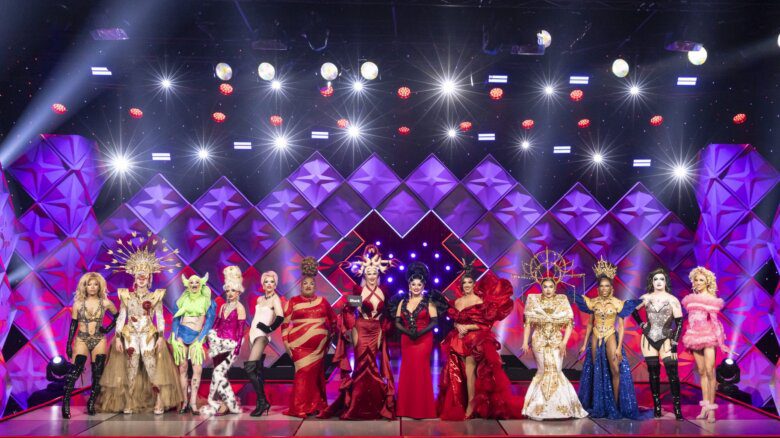When it comes to radical sexuality, you really can’t trump the ancient Greeks. Their plays and mythologies feature every taboo imaginable: rape, incest, polygamy, genital mutilation and plenty of man-on-man action. Toronto’s Bound to Create Theatre was well aware of this in developing its adaptation of the Hellenic classic Phaedra. Choosing lust as the central theme, Bound to Create has combined text from Racine’s 17th-century version with English writer Sarah Kane’s 1996 take to create Phaedra’s Lust, presented as part of the annual Lab Cab Festival at Toronto’s Factory Theatre.
“We’re interested in creating intense and visceral experiences for people,” director Jack Grinhaus says. “Sometimes theatre can get really heady, so we’re always trying to bring the heart and the body into the work. I want my actors to be like wild animals in the performance, existing in a state of constant tension.”
Though the precise details of the story vary among the dozens of versions composed over the centuries, the basic structure remains the same. Phaedra is struck by an uncontrollable urge to fuck her stepson Hippolytus while her husband, Theseus, is away. When Hippolytus rejects her advances, she decides to hang herself, leaving a note behind saying that he raped her. When Theseus returns home and learns the bad news, he has his father, the sea god Poseidon, kill Hippolytus by conjuring a sea monster to spook Hippolytus’s horses, which drag him to his death.
Though Phaedra is often portrayed as an evil character, hell-bent on having her lustful way, Kane presents an alternate take. The queer writer, who took her life in 1999 at the age of 28, has had a resurgence in Toronto lately, with Brendan Healy’s production of Blasted at Buddies last season, and Jennifer Tarver’s version of Crave for Nightwood Theatre in 2007.
“Kane’s take is interesting because it’s one of the few feminist accounts of the story,” Grinhaus says. “There’s a certain sympathy for Phaedra, because the whole situation isn’t really her fault. She’s just a victim of circumstance. I really felt for her in reading it.”
The company’s decision to present the work goes beyond a fascination with classical narratives or even the experience of their audiences.
“Toronto is a very repressed city compared to other major world centres,” Grinhaus says. “The rise of the new Philistinism and the puritanical attacks at arts funding is a huge problem. We have politicians saying they don’t want to fund political art, which is bullshit. All art is political, and it’s our job as artists to keep reminding people of that.”


 Why you can trust Xtra
Why you can trust Xtra


